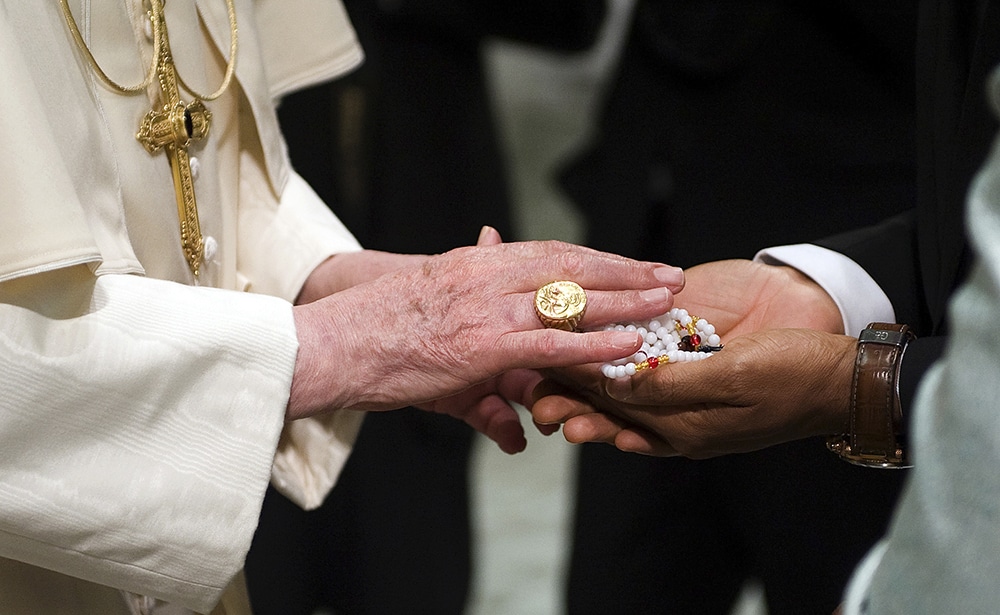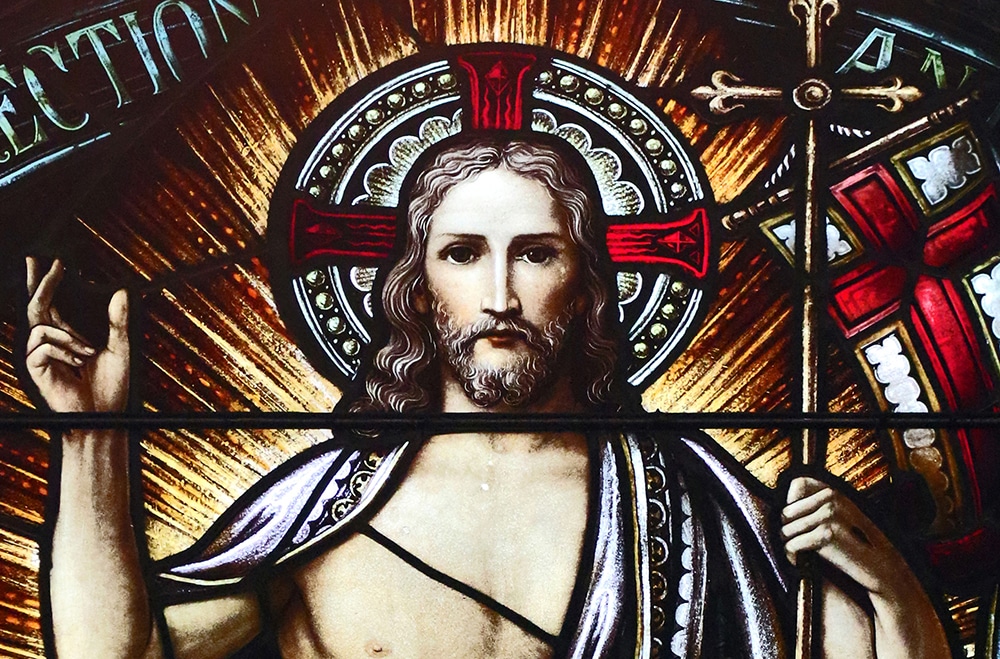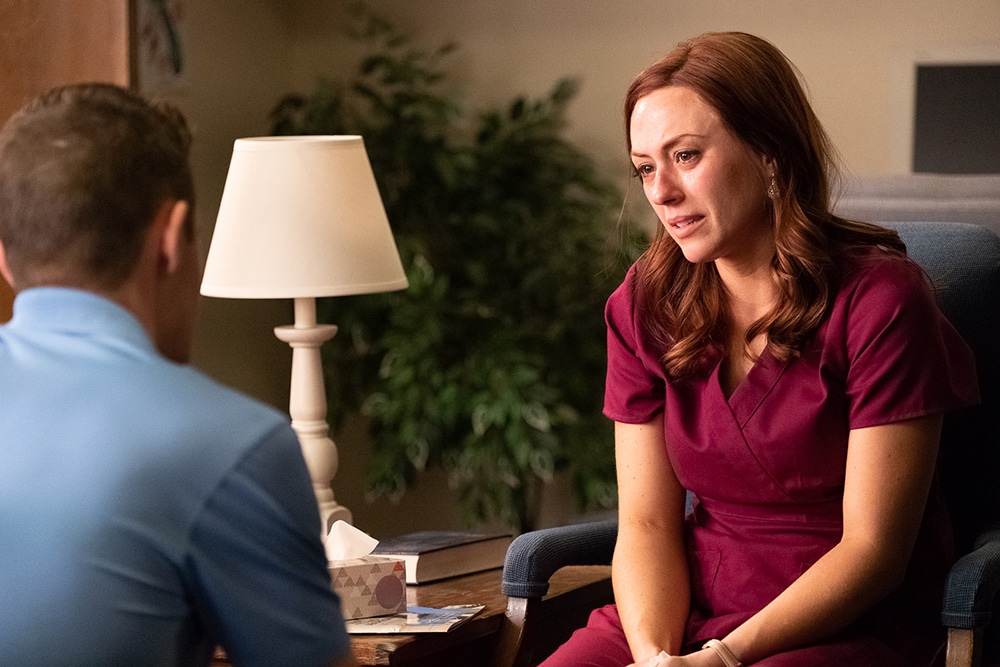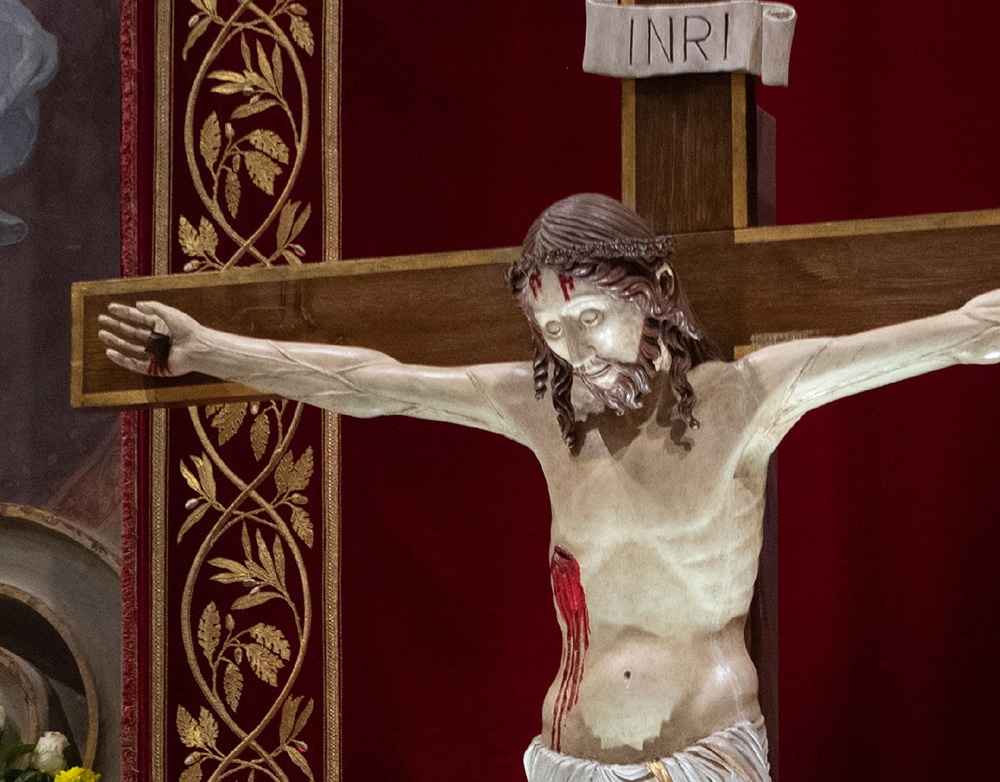It can seem the pre-Pentecost apostles had:
A) Tremendous faith.
B) Deep understanding.
C) A little trepidation.
One way or another, Jesus gave them what sounds like a mixed message at first glance. To borrow a phrase once extremely popular on classroom tests, “compare and contrast 1 and 2.”
1. “Do not think that I have come to bring peace upon the earth. I have come to bring not peace but the sword. For I have come to set a man ‘against his father, a daughter against her mother, and a daughter-in-law against her mother-in-law; and one’s enemies will be those of his household'” (Mt 10:34-36).
2. “Peace I leave with you; my peace I give to you. Not as the world gives do I give it to you” (Jn 14:27).
Same speaker: Jesus. Same audience: the apostles. So did they have that faith and understanding, or was each afraid to raise a hand and say, “Hold on a minute there, Jesus”?
You probably have heard more than one sermon on the fact that if you follow Christ, which the homilist highly advocates, you very well may be bringing a world of hurt upon yourself.
Since the time of Christ, Christianity has had its bitter foes, thanks in no small measure to the same one who tempted Jesus to turn a stone into bread, take control of the world and hop off the parapet of the Temple (cf. Lk 4:1-13).
And you also probably have heard sermons that drive home the comforting message that the Prince of Peace takes care of each of his own in a particular and unique way.
In a — here it comes! — personal way.
On a global scale, “peace” generally means an absence of war. A very good thing.
Within you, it means a sense of calmness, confidence and trust, despite international flare-up and in-home flaps.
No, most of us won’t broker a fair and lasting truce between two countries, but each of us can do something about the inner turmoil that bubbles up within ourselves throughout our lives.
We can give “personal peace” a chance.
But how?
Points to consider
1. Sin quickly can cloud and even destroy our sense of peace. Grace can restore it. Always.
Now for some good news and some bad news.
Good news: Peace is possible and you — yes, you — can get some, get more! Bad news: It isn’t exactly free. Yes, it’s absolutely free in the sense that grace is available in the sacraments and other gifts from God. But, it’s not free because, in another sense, that personal peace, like a garden, needs tending. It needs our time and attention. It needs our active, faithful and faith-filled participation.
2. There’s an old joke that says, “I love humanity. It’s people I can’t stand.” Similarly, we think we can be at peace with ourselves and be focused completely on ourselves.
Part of this means — and here comes this deal’s fine print — we need to be a person of forgiveness. Asking for it when we’ve hurt another. Accepting it when another who has hurt us asks to be forgiven.
But. Both. Are. So Hard!
You said it. So is forgiving ourselves. That is, rejecting the nagging (devilish?) suspicion that somehow our sins weren’t forgiven in the Sacrament of Confession.
So, for the love of God, accept his forgiveness! Appreciate it. Treasure it. Believe it.
God never lies. The Father loves you unconditionally. The Son was executed for the forgiveness of your sins. The Spirit wants to fill your mind, heart and soul with peace, but he’s not going to force it on you or in you.
In a way, we have to choose to accept it, because we have free will. (What a silly and unimaginable thought: God saying, “I’m going to make you love me.”)
3. The peace we have when we step out of church after going to confession or step through our front door after a really great retreat can disappear faster than a hot pizza in a teen-filled household.
Odds are you know that because you’ve experienced it more than a few times. (The instant evaporation of a sense of peace. And, maybe, the pizza — “Nobody saved me even one slice?”)
Bam! Right in your face. There’s the world with all its annoying world stuff. All those people with all their annoying people stuff. And there are you, just like Peter, James and John coming down the mountain after Jesus’ transfiguration (cf. Lk 9:28-36). They wanted to stay there, but they followed him.
Just so, you have to follow him where he leads you on the path for which you were created. Doing God’s will in this messy, peace-disturbing and peace-destroying world.
4. Wow, all this seems a bit depressing. Let’s look at personal peace this way: a spectrum moving from spark to flame to bonfire to conflagration. Moving back and forth. Up and down. Hot and cold. The peace may grow dim at times but, to quote St. Catherine of Siena, “Be who God meant you to be and you will set the world on fire.”
Imagine that. The world, and you, on fire with peace.
5. One final point. In the words of the Catechism of the Catholic Church (No. 2305): “Earthly peace is the image and fruit of the peace of Christ, the messianic ‘Prince of Peace.’ By the blood of his Cross, ‘in his own person he killed the hostility,’ he reconciled men with God and made his Church the sacrament of the unity of the human race and of its union with God. ‘He is our peace.’ He has declared: ‘Blessed are the peacemakers.'”
Blessed are you, for making peace with others, promoting peace (and justice) on a wider scale and nurturing peace in your own life, your own home, your own heart.
Then, in the words of Jesus in the Sermon on the Mount, you’re called — and will continue to be — a child of God.
Bill Dodds writes from Washington.







